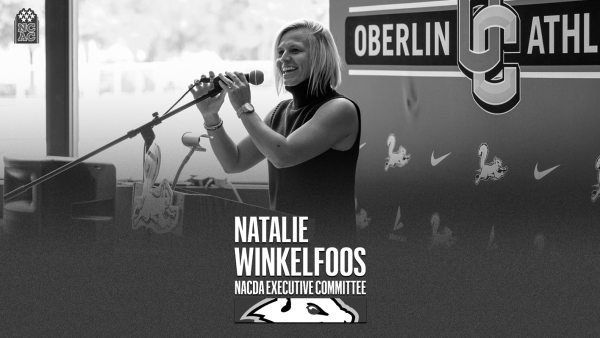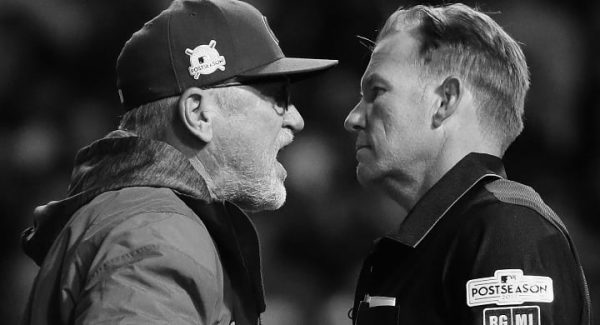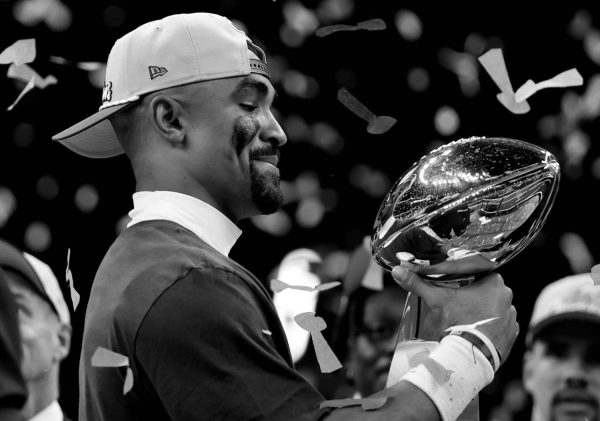Howard Scandal Exposes Homophobia
Two weeks after the 2012–13 NBA regular season wrapped up, Jason Collins — at the time, a free agent — sat in front of his TV and took a deep breath, waiting to see himself all over the news.
He couldn’t hold it in any longer, and had already told 20 of his family members and closest friends. Now it was time for everyone else to know.
Journalist Franz Lidz helped Collins articulate his thoughts and emotions in a first-person story that was minutes away from being published on Sports Illustrated’s website. On that day, April 29, 2013, Collins told the world that he is gay.
A year later, after being overlooked by some teams because of all the attention surrounding his announcement, Collins was picked up by the Brooklyn Nets and made history by becoming the first active male athlete from one of the four major professional sports leagues — NBA, NFL, MLB, and NHL — to be openly gay.
On the flight back to Brooklyn after Collins’ first game with the Nets, future Hall of Fame inductee Kevin Garnett tapped Collins on the shoulder.
“Hey, I just want you to know how proud I am and how big this moment is, for you, but also for a lot of people,” Garnett said.
After his return to the league, Collins had the top-selling jersey on NBA.com for two weeks, making him more popular than LeBron James, Kevin Durant, and Blake Griffin. Collins had even received a phone call from former President Barack Obama and, in two months, would be featured on the cover of TIME Magazine’s “100 Most Influential People in the World.”
Because of how positively people reacted to Collins’ reveal, many people believed that his act of bravery would cause a ripple effect across professional men’s sports.
This has not been the case. Not a single male athlete in the NBA, NFL, MLB, or MLS has publicly come out in years. The last time a gay male athlete came out publicly was former American and Canadian football player Michael Sam in 2014.
The way that many Twitter users reacted to a scandal that surfaced online last weekend involving Washington Wizards center Dwight Howard shows why this might be the case. On Nov. 24, author Masin Elijé tweeted that he had previously been in a relationship with Howard and accused Howard of hiding his own sexual preferences from the world, sleeping around while dating Elijé, and threatening Elijé’s health and safety after Elijé refused to sign a nondisclosure agreement. He also claimed to have received many frightening phone calls from a man named Calvin — allegedly someone Howard knows.
Because Elijé has yet to provide hard evidence, it is hard to know at this point what actually happened. Neither Howard nor the NBA has addressed the situation. Regardless, the reactions to the allegations revealed that homophobia and transphobia within the world of men’s sports are as prevalent as ever; many people assumed that Elijé was a transgender woman because of his fashion choices, although he considers himself a cisgender man.
Many Twitter users saw the scandal as an opportunity to crack jokes and project hatred. One user posted a photo of himself next to Howard and said he couldn’t believe he ever shook Howard’s hand. It seemed as if many people were more concerned by Howard’s alleged sexual preferences than the idea that a person’s life might have been threatened. While it’s wrong to out somebody, putting someone’s life in danger is far more abominable.
Comedian and actor Ronald Funches tweeted, “You ever wonder if the transphobic and homophobic jokes you’re making about Dwight Howard right now are the exact reason he felt he needed to threaten someone’s life to keep it a secret or nah?”
Sports reporter Lindsay Gibbs tweeted, “The reaction to the rumors/reports about Dwight Howard show you everything you need to know about why male pro athletes stay in the closet. So much homophobia and transphobia, it is absolutely sickening.”
Collins himself weighed in on the matter, tweeting, “Transphobic & homophobic jokes aren’t funny and can lead to deadly consequences. Transphobia & homophobia get people killed everyday around the world.”
The claims made about Howard are particularly interesting considering his upbringing in a Christian household. According to a Sports Illustrated article published by Lee Jenkins in September 2017, Howard slept under a wooden cross and a framed copy of the Ten Commandments as a child and prayed several times a day. When he joined the firemen’s league at Atlanta Christian College, he told his teammates that one day he would convince the NBA to superimpose a cross over its silhouetted logo. In 2007, Howard had his first of five children out of wedlock. He later spoke with Jenkins about the shame and judgement he felt as a result, motivated by his religious background.
Whether they’re true or not, the allegations against Howard aren’t just troubling — they’re tragic. The underlying issue is that many gay professional athletes do not feel comfortable enough to be their real selves, which is a direct reflection on the way that many Twitter users perceived the Howard scandal. If Elijè was being truthful, it’s a shame that Howard acted the way he did — out of fear of rejection, ridicule, and hatred. How many professional athletes are waiting to come out? Are there others resorting to threats to hide their identity, just as Howard did?
If an NBA player did decide to come out, I am certain that he would be met with support from NBA Commissioner Adam Silver and the rest of the league. The NBA has a float in the New York Pride March, and many teams around the league hold Pride Nights. The Los Angeles Lakers held their first-ever Pride Night a month ago. Conner Mertens, bisexual football player for the Willamette University Bearcats, presented Collins with the Laces of Unity Award, which recognizes individuals in the sports community who have significantly contributed to the LGBTQ community.
But if Pride Nights are a step forward, the senseless, heartless tweets that poked fun at the LGBTQ community and downplayed Elijè’s allegations last weekend are two steps backward. Although there are no facts supporting Elijè’s claims yet, they are still worth taking seriously — for his sake and the sake of Howard and the entire LGBTQ community, including those who have not come out yet.







